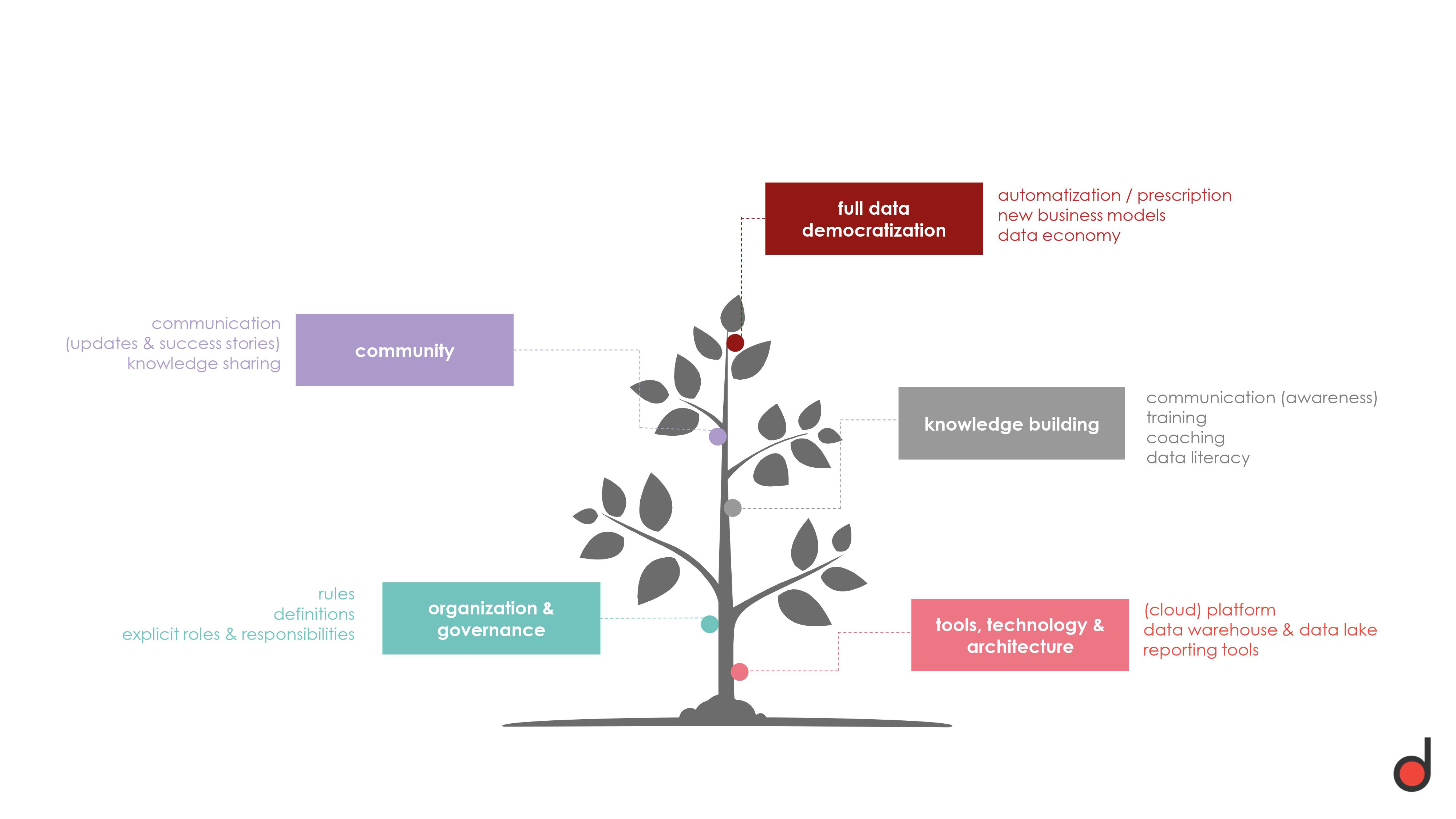Clearing up the data mesh
Technology and architecture are just one step in the journey towards full data maturity. Taking part in the data economy requires a much more complex cultural and mental shift, which we’ve already hinted at above: regarding data as a product or an asset to be consumed. Not coincidentally, this is also one of the four central principles of the data mesh paradigm.
In a data mesh, data is managed in a decentralized and democratized way, by the people and teams who are closest to it. To make this work universal interoperability is required, meaning everyone needs to adhere to the same syntax and standards of data governance. As you’ve probably guessed, this concept is central to enable the data economy as well. As companies share data with other organizations, industries need to make clear agreements. Evidently, APIs play a crucial role in this on a technical level.
At the end of the day, the data economy isn’t so much about technology as it is about building business cases through data. In the long term, the goal is to make working with and sharing data as matter-of-fact as stepping into a car and driving – without knowing exactly how everything works, but being fully confident that you’ll reach your destination.






